“The only way to make a revolution is to take the university and recapture it for the students and for the people!”
|
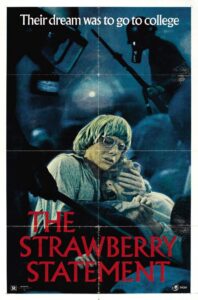
Synopsis:
A college student (Bruce Davison) joins a revolutionary movement on campus in order to get closer to a girl (Kim Darby) he’s interested in.
|
|
Genres, Themes, Actors, and Directors:
- Bud Cort Films
- College
- Coming-of-Age
- Revolutionaries
Review:
Loosely based on James Kunen’s non-fiction account of his experiences at Columbia University in the 1960s, The Strawberry Statement offers a heady look at counterculture activism, one which unabashedly foregrounds the fact that a desire to “fit in” and “meet chicks” may have propelled many impressionable college students towards their nascent identities as revolutionaries. To his credit, director Stuart Hagmann never tries to present his protagonist (well played by a very young Bruce Davison) as anything other than utterly human; we believe in him because we can relate to his youthful desire for excitement and romance. Much has been made about the fact that Hagmann — primarily a director of commercials and television shows — can’t seem to keep his camera still, but modern audiences used to MTV jump cuts will likely find his direction relatively tame; and while his overhead shots of protesters splayed out in Busby Berkeley-like formations strike some as disingenuous, I believe they provide a nifty visual touch to the proceedings. Ultimately, The Strawberry Statement isn’t meant to be a neo-realist documentary, but rather a psychedelic envisioning of a specific time and place, as experienced by one young man; as such, it’s a dated but relatively worthy cinematic time-capsule.
Redeeming Qualities and Moments:
- Bruce Davison as Simon
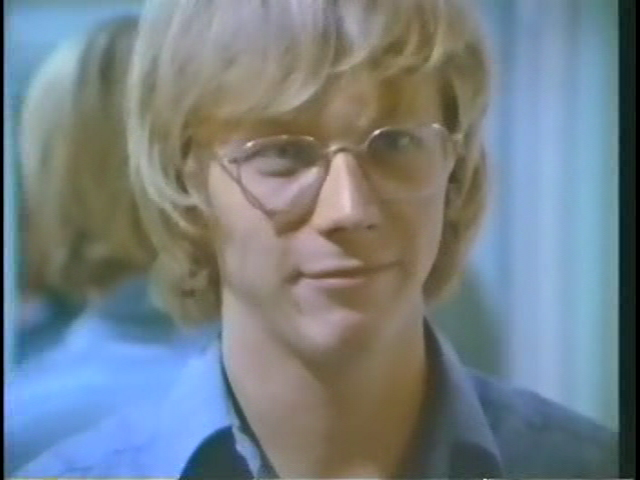
- Kim Darby as Simon’s love interest, Linda
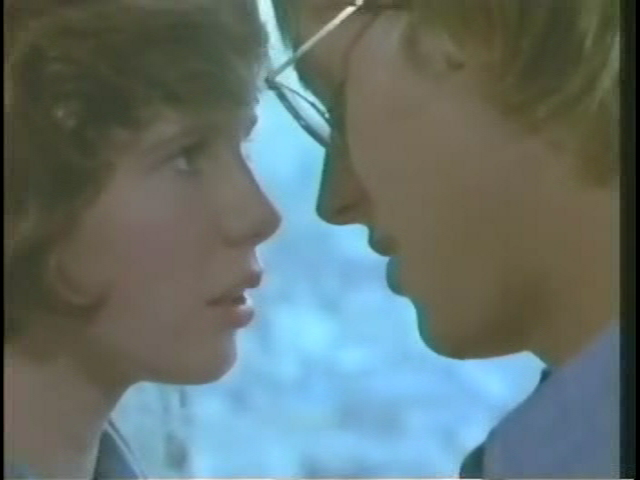
- Simon and Linda “holding up” a local grocery store

- Good use of Bay Area locales
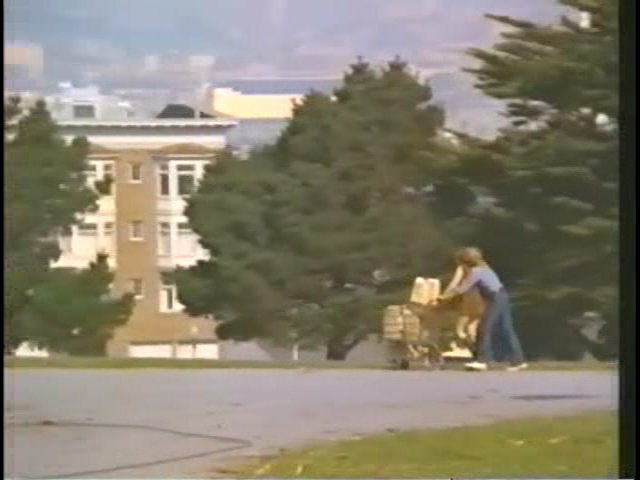
- An effectively heady depiction of student protest in the 1960s
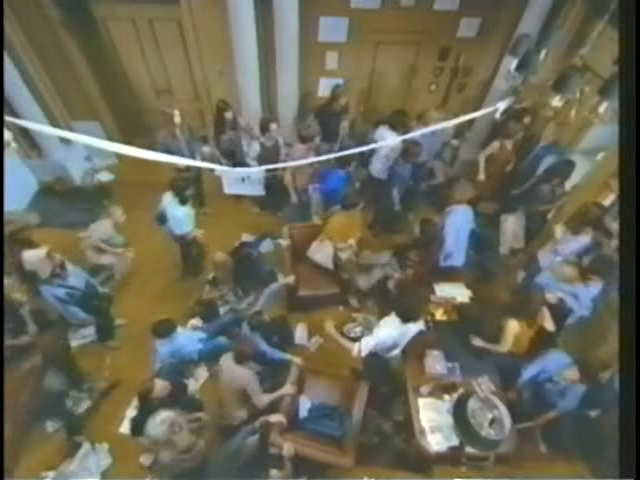
Must See?
No, but it’s certainly recommended for those interested in cinematic depictions of counterculture movements.
Links:
|
One thought on “Strawberry Statement, The (1970)”
Not a must.
More or less in agreement with the assessment – tho I’m not as enthusiastic re: the particulars; nor I do find much by way of redeeming qualities.
It comes off more like a mood piece; a collage on college unrest. There’s very little character development – but then, considering what we do know about the main characters, there doesn’t seem much character to develop. Darby and Davison (the better actor) have little chemistry and don’t make much sense as a couple. Bud Cort and Bob Balaban don’t really register (they’d be better served by better directors around the same time: Cort in ‘Brewster McCloud’ and Balaban in ‘Midnight Cowboy’ and ‘Catch-22’).
One of the more clearly defined scenes is in the deli – NY playwright Horovitz (the film’s screenwriter) gives NY actor James Coco a nifty cameo.
One can’t shake the feeling, at times, that the film is little more than an excuse for a soundtrack – with its emphasis on Crosby, Stills, Nash and Young; who were huge at the time. (Buffy Sainte-Marie’s warbling of Joni Mitchell’s ‘The Circle Game’ – which, unfortunately, both opens and ends the film – is off-putting.)
I know I read Kunen’s book when I was in college – and I recall (though this is vague) thinking it had a certain intelligence and charm. It’s more a diary, really – which explains the film’s haphazard quality.
I’ve always thought Kunen – who appeared in the film – didn’t like what was done to his book.